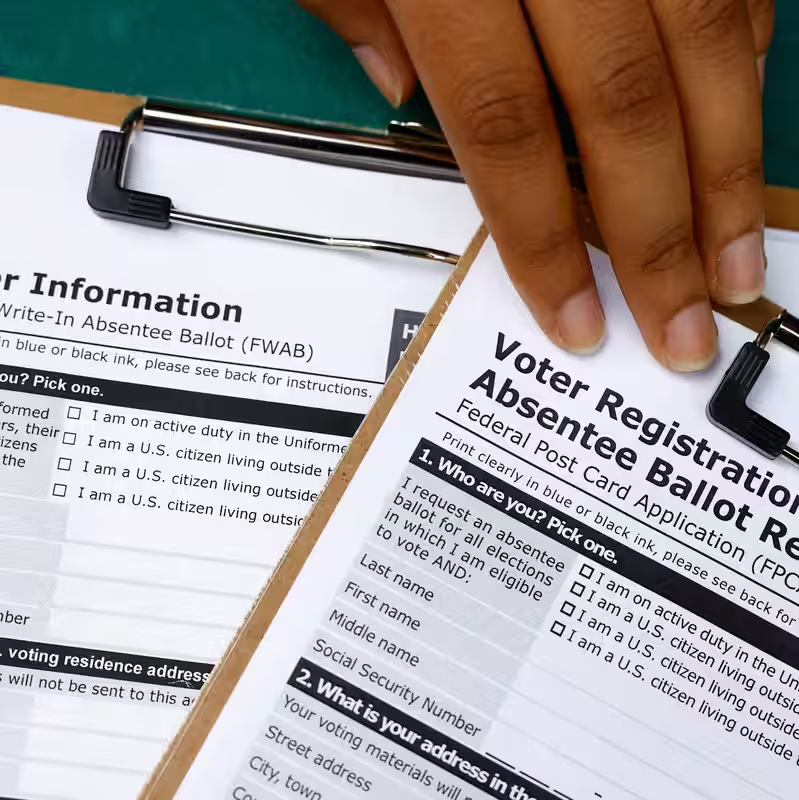Table of Contents
- Federal Judge Permanently Halts Policy
- What Was in Trump’s Executive Order?
- Why the Court Called It a Power Grab
- Who Would Have Been Affected?
- Part of Larger Voting Rights Battle
- Sources
Federal Judge Permanently Halts Policy
In a sweeping rebuke of executive overreach, a federal judge in Washington, D.C., permanently blocked President Donald Trump’s attempt to require proof of citizenship for voter registration on federal forms. The ruling, issued Friday by U.S. District Judge Colleen Kollar-Kotelly, declared the policy unconstitutional and a clear violation of the separation of powers.
“The President does not feature at all” in the constitutional framework governing elections, wrote Judge Kollar-Kotelly, an appointee of President Bill Clinton, in her 81-page opinion.
What Was in Trump’s Executive Order?
In March 2025, President Trump signed an executive order directing the U.S. Election Assistance Commission (EAC)—an independent, bipartisan agency—to revise the federal voter registration form to include a requirement for documentary proof of citizenship, such as a birth certificate or passport.
The move was part of a broader push by the administration to impose stricter voting rules, including ending no-excuse mail-in voting and mandating voter ID laws nationwide—policies critics say disproportionately impact low-income, elderly, and minority voters.
Why the Court Called It a Power Grab
Judge Kollar-Kotelly’s ruling emphasized that under the U.S. Constitution, authority over federal elections rests with Congress and the states—not the president. The Elections Clause explicitly delegates rulemaking for federal elections to state legislatures, with Congress holding supervisory power.
“Congress has never assigned any responsibility for the content of the federal form to the president,” the judge wrote. “The power to alter the federal form is—and always has been—delegated solely to a bipartisan, independent commission.”
The court found that Trump’s directive effectively bypassed both Congress and the EAC, unilaterally imposing changes that only lawmakers or the commission itself could authorize.
Who Would Have Been Affected?
Voting rights advocates warned the policy would disenfranchise millions. According to a 2023 study by the Brennan Center for Justice and the University of Maryland, approximately 21.3 million U.S. citizens do not have immediate access to government-issued proof of citizenship.
Groups most at risk include:
- Low-income individuals
- Elderly Americans
- Active-duty service members
- Women who changed names after marriage
- Rural residents with limited document access
“This wasn’t about election integrity—it was about erecting barriers,” said Norm Eisen of the Democracy Defenders Fund, which represented plaintiffs in the case.
Part of Larger Voting Rights Battle
Friday’s decision marks the latest victory for voting rights coalitions fighting what they describe as a coordinated effort to restrict ballot access. The lawsuit was brought by a coalition including the League of United Latin American Citizens (LULAC) and the League of Women Voters Education Fund.
Separately, a federal judge in Massachusetts had already blocked other provisions of Trump’s voting executive order, including mandates on mail-in ballot counting. The White House announced it will appeal Friday’s ruling.
Senate Minority Leader Chuck Schumer hailed the decision on social media, calling the policy “voter suppression dressed up as patriotism.”
With the 2026 midterms approaching, legal experts say this case sets a critical precedent: the presidency cannot unilaterally rewrite election rules—even under the guise of “securing” democracy.




